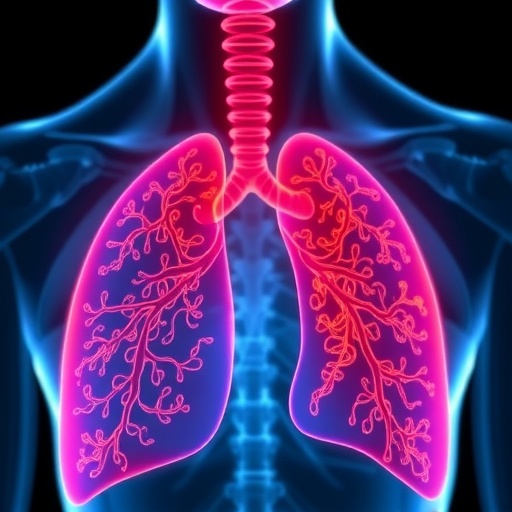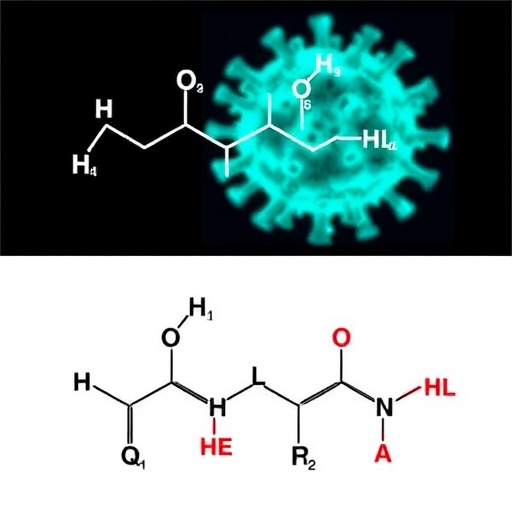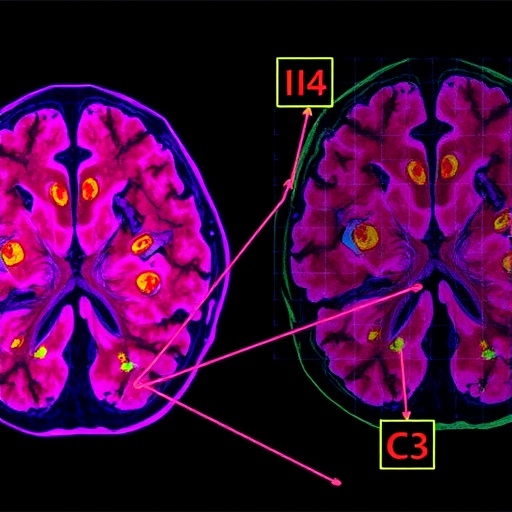PROTECT YOUR DNA WITH QUANTUM TECHNOLOGY
Orgo-Life the new way to the future Advertising by AdpathwayIn a groundbreaking study published in BMC Nursing, researchers have delved into the complex issue of ageism, particularly as it relates to the nursing profession and its approach to older adults. Conducted as a randomized controlled trial, this research sought to determine the effectiveness of an educational intervention aimed at modifying ageist attitudes among nurses. As the global population ages, the need for effective care strategies for older adults is of utmost importance, making this study particularly relevant in today’s healthcare landscape.
The researchers, F. Miranzadeh, R. Sefidkar, and H. Rezaeipandari, approached the study with a clear hypothesis: providing nurses with targeted education can lead to significant changes in attitudes towards older patients. Ageism, defined as prejudice or discrimination against individuals based on their age, poses serious consequences for the quality of care experienced by older adults. It can manifest in various forms, including stereotyping, devaluation, and outright neglect. Thus, addressing ageism is critical not just for the well-being of older patients, but also for the overall integrity of healthcare systems.
In a randomized controlled design, participants were split into two groups: one receiving the educational intervention while the control group continued with standard training. The educational material focused on various aspects of geriatric care, emphasizing the value and dignity of older adults, as well as the specific needs and challenges they face. This approach was grounded in the understanding that nurses often interact with older patients and thus have a front-line role in shaping the quality of care these individuals receive.
Results revealed a remarkable shift in attitudes among those who participated in the educational program. Nurses reported a deeper understanding of the complexities involved in caring for older adults as well as an increased appreciation for their life experiences. This shift is pivotal; when healthcare professionals actively challenge their own biases and enhance their empathy, patient care improves correspondingly. The findings of this study underscore the necessity of continuous professional development tailored specifically for nurse practitioners focused on geriatric care.
Furthermore, the implications of the study extend beyond immediate nurse-patient interactions. As nursing educators and policy-makers look to improve curricula and training programs, these results signal a need for integrating comprehensive geriatric education into nursing programs. With the aging population steadily increasing, aligning nursing practices and education with the realities of current demographics will be vital for ensuring high-quality care.
Moreover, the research proposes that implementing similar educational interventions could not only reform individual attitudes but potentially lead to a cultural shift within broader healthcare practices. Challenges remain, however, as deeply rooted societal biases towards aging may inhibit long-term change without ongoing training and awareness. The results thus advocate for systematic changes in how age-related training is perceived and integrated into healthcare environments.
In addition to improving attitudes, the study emphasizes the importance of fostering an environment that encourages open dialogue about ageism within nursing teams. Engaging in discussions about biases and misconceptions allows nurses to critically reflect on their practices and challenge prevailing stereotypes that older adults face. Creating such a culture of awareness within healthcare systems is essential for reducing prejudicial attitudes and improving the overall patient experience.
Equally essential is the concept of mentorship in nursing practice, particularly concerning the experienced nurses guiding newcomers in understanding effective geriatric care. By creating mentorship models that prioritize the sharing of knowledge about older adults and dispelling myths surrounding aging, healthcare organizations can cultivate a supportive environment that champions innovative care strategies.
The trial also examined various methodologies employed in delivering the educational content, exploring options such as workshops, seminars, and online modules. The versatility of educational intervention methods allows for customizable approaches to suit the needs of different nursing cohorts and healthcare settings, thus maximizing reach and effectiveness. As healthcare continues to evolve, integrating such flexible educational platforms will be imperative for nurturing a more compassionate and informed nursing workforce.
Reflecting on the long-term vision of this research, it becomes evident that addressing ageism within nursing is not just a matter of education but also of elevating discussions around older adults in society as a whole. By challenging ageist beliefs and advocating for the rights and dignity of older individuals across various sectors, a more inclusive framework can emerge, benefiting not only the healthcare industry but society at large.
In conclusion, Miranzadeh and colleagues’ study offers a critical look at ageism within nursing through a practical lens, demonstrating that education can indeed be a transformative force in altering biases. The research serves as a clarion call for the healthcare sector to take proactive measures in promoting a holistic, informed, and respectful approach to geriatric care. As the global community grapples with the implications of an aging population, the lessons learned from this research will inform future initiatives aimed at improving the treatment and understanding of older adults, ultimately leading to healthier, more equitable outcomes in healthcare.
The findings and discussions generated by this important body of work have the potential to echo throughout the medical community, prompting legislative discussions, shaping educational curricula, and encouraging a renewed emphasis on the intrinsic value of older adults in all aspects of life.
By understanding and addressing the multifaceted nature of ageism, healthcare providers can prepare themselves not only to fulfill their professional duties but also to serve as advocates for a demographic that has been historically marginalized. Indeed, this study is just the beginning of an essential conversation that must transcend beyond the confines of academia and into the heart of everyday healthcare practice and policy-making.
Subject of Research: Ageism in nursing and its impact on the care for older adults through educational interventions.
Article Title: Effectiveness of an educational intervention in modifying ageism among nurses in caring for older adults: a randomized controlled trial.
Article References:
Miranzadeh, F., Sefidkar, R. & Rezaeipandari, H. Effectiveness of an educational intervention in modifying ageism among nurses in caring for older adults: a randomized controlled trial.
BMC Nurs 24, 1132 (2025). https://doi.org/10.1186/s12912-025-03798-z
Image Credits: AI Generated
DOI: 10.1186/s12912-025-03798-z
Keywords: Ageism, nursing education, older adults, healthcare, randomized controlled trial, intervention strategies, geriatric care.
Tags: addressing stereotypes in healthcareageism in nursingattitudes towards older adultscombating age discrimination in healthcareeducational interventions for nurseseffective training for nursing professionalsevidence-based nursing practiceshealthcare strategies for aging populationsimproving nurse-patient relationshipsquality of care for elderly patientsrandomized controlled trials in nursingsignificance of nurse education on ageism


 2 hours ago
13
2 hours ago
13





















 English (US) ·
English (US) ·  French (CA) ·
French (CA) ·